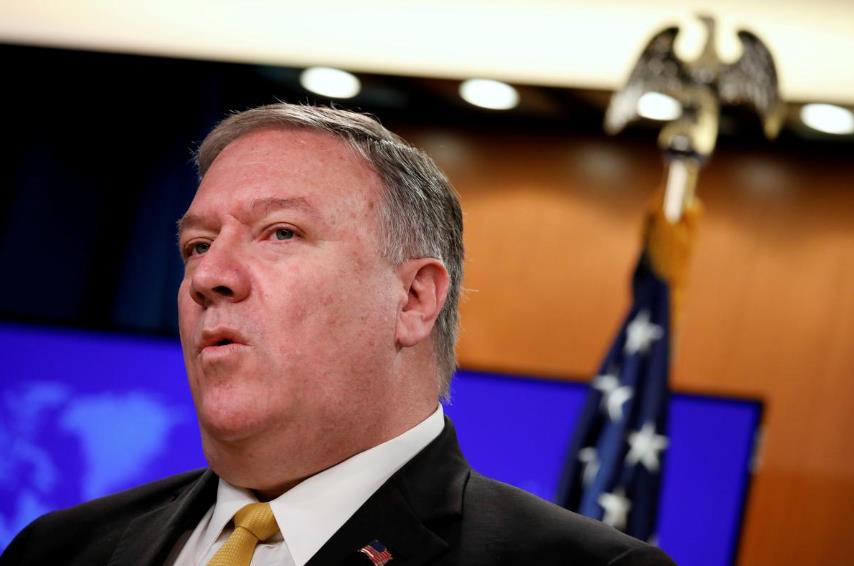US disapproves of UNHRC as it does not serve its agenda
By Dai Ruijun | China Daily | Updated: 2019-07-29 08:34

US Secretary of State Michael R. Pompeo announced on July 8 a "Commission on Unalienable Rights" has been established to advise the State Department on human rights based on the principles of the 1948 Universal Declaration of Human Rights.
Pompeo said: "The time is right for an informed review of the role of human rights in American foreign policy." He said the commission has been set up to answer the basic questions including "what does it mean to say or claim that something is, in fact, a human right". And the mission of the commission is to "provide advice on these questions not as purely abstract academic matters, but in a manner deeply informed by the timeless truths embedded in the American founding with a view to guiding our nation's foreign policy".
Mary Ann Glendon, chair of the commission and a professor of law at Harvard University, said the commission will do its best to carry out the secretary of state's directives and to do so in a way that will help him transform principle into policy.
But many US as well as foreign observers have questioned the purpose of the commission, saying the term "unalienable rights" goes against the global vision and values of human rights. Worse, the commission violates the principle of separating religion from politics by recruiting religious figures or people with extreme views.
Indeed, the US State Department has established the commission to serve the US' foreign policy, that is, further politicization of human rights issues. For long, the US has used human rights as a weapon in its foreign policy.
And since the 1970s, the US has been acting as a human rights teacher for other countries while criticizing other countries' human rights records. Which shows the US has been using human rights as an excuse to force other countries to follow its policies.
Also, the US imposes economic sanctions and/or travel restrictions on individuals and organizations from other countries for what, according to US law, are human rights violations. But the US' human rights principles are not internationally recognized-nor do they conform to the United Nations Human Rights Treaties, which are at the core of the international system for the promotion and protection of human rights.
In December 2016, the US Congress passed the "Global Magnitsky Human Rights Accountability Act", which Washington regards as a new tool to target "human rights violation behaviors in every corner of the world".
Besides, the US has always ignored international human rights norms and, instead, promoted its own version of human rights "values", reflecting its hegemonic thinking.
On March 15, 2006, the UN General Assembly voted overwhelmingly to replace the UN Commission on Human Rights with the UN Human Rights Council to facilitate the establishment of a universal periodic review system, so as to prevent the politicized, selective and double-standard national human rights review procedure, which previously had come in for severe criticism.
Since no country's human rights record is perfect, it is the UNHRC's responsibility to periodically review the UN member countries' human rights records. The UN emphasizes that global human rights issues be dealt with on the principles of equality, dialogue and cooperation. So the reform of the UN human rights body is in accordance with the original intention of the UN to achieve international cooperation in promoting and protecting human rights.
Since the UN reform is against Washington's policy of politicizing human rights issues, the US is one of only a few countries opposing the establishment of the UN Human Rights Council.
In 2018, the US decided to withdraw from the UNHRC, and now it has announced the establishment of a "human rights council" to serve its human rights agenda. Which is nothing but an extension of the White House's "America first" strategy, which reflects the US' policy of politicizing human rights issues as usual.
The author is a researcher at Institute of International Law, Chinese Academy of Social Sciences. The views don't necessarily represent those of China Daily.























